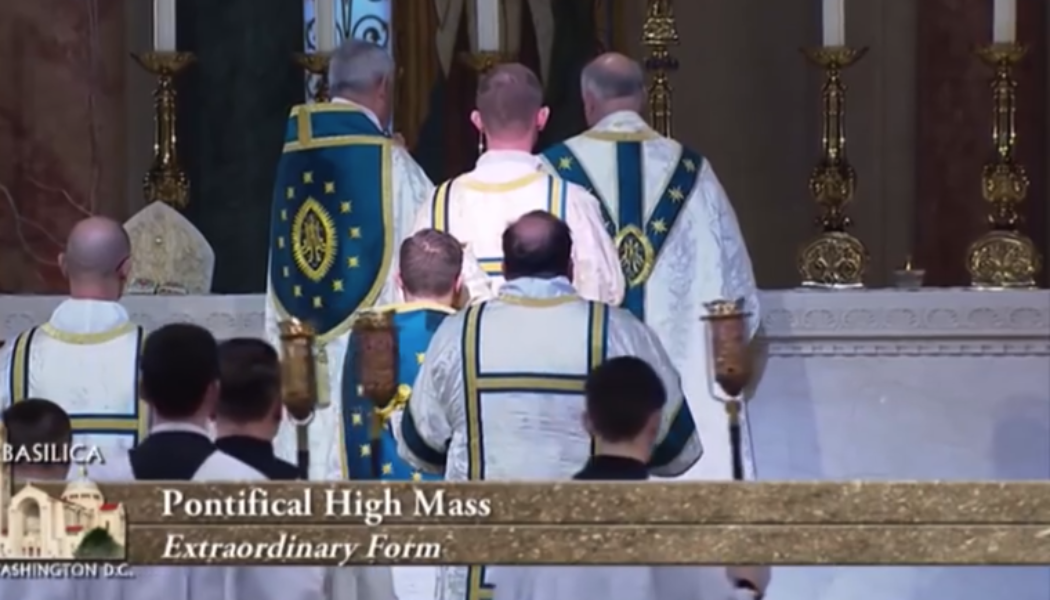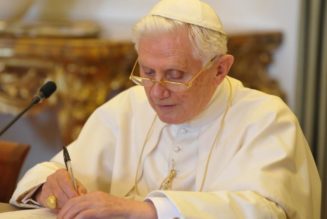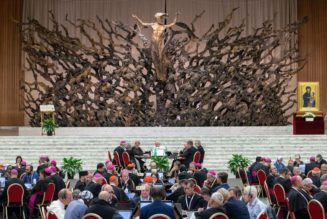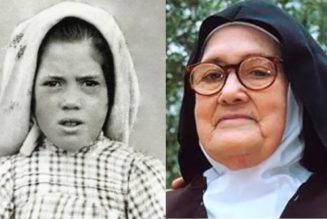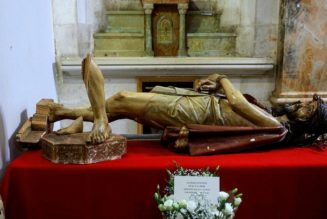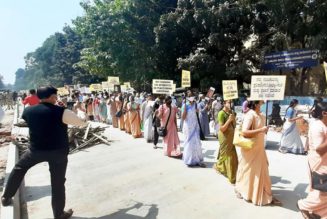
Pope Francis’ motu proprio Traditionis Custodes has restricted celebration of the traditional Latin Mass in a way that some fear could cause more division, despite the Pope’s stated aim to achieve greater unity within the Church and curb what he calls “divisive tendencies” among those attached to the older form of the Mass.
Concerns raised with Traditionis Custodes (Guardians of the Tradition) released July 16 include questions regarding the premises on which it is based and distress over its treatment of Catholics who have sought to remain faithful to the Church even as they have struggled with liturgical and other reforms. And others have questioned why such extreme measures were applied to a liturgical matter when the Church is burdened by seemingly weightier issues.
Various U.S. bishops have sought to reassure traditional Catholics, allowing continuation of what the document calls the “Mass of the 1962 Roman Missal,” while other bishops have taken a wait-and-pray attitude, asking for time to digest the terms of the motu proprio and the accompanying letter from Pope Francis.
Traditionis Custodes comes at a time when the 1962 Mass has attracted more Catholics, some of whom discovered it at churches that remained open during COVID-19 restrictions, while many churches shut down and limited access to the sacraments. Before 2020, the traditional Mass became more widely celebrated through Pope Benedict XVI’s 2007 motu proprio Summorum Pontificum, which allowed any priest to use the older rite without the permission of his bishop. According to the “Latin Mass Directory,” there are 657 venues in the United States that offer the extraordinary from of the Mass.
But in a letter released with the new motu proprio, Pope Francis said Benedict’s pastoral objective of unity in Summorum has been disregarded and exploited “to widen gaps, reinforce divergences and encourage disagreements.”
Fearing Deeper Divisions
Even though traditional Catholics had been bracing themselves in recent weeks for the rumored restrictions, the constraints imposed by Traditionis Custodes have come as something of a shock, raising questions about the document’s implementation and impact.
Father Thomas Kocik, a priest of the Diocese of Fall River, Massachusetts, and author of books and articles on the liturgy, including The Reform of the Reform? A Liturgical Debate: Reform or Return (Ignatius Press), said he is afraid deeper divisions will occur in the Church as a result of Traditionis, even as the Pope claims he is seeking unity.
“Unity cannot be forced, only fostered,” Father Kocik told the Register. In addition to greater division, he said he worries that the restrictions, if implemented rigorously, could drive many into canonically irregular or even schismatic communities.
A member of the Society for Catholic Liturgy, Father Kocik said the claim that the traditional Mass has caused division belies his own experience.
“For years, I have celebrated the old Mass in diocesan parishes and have not found it to be a cause of ecclesial division. On the contrary, where I live, the traditional Latin Mass has allowed Anglo, Hispanic and Brazilian Catholics to worship together according to their common Roman liturgical heritage.”
Father Kocik also questions what he calls “dubious premises” that he said seem to underlie the motu proprio: that the Missal of Paul VI, amended by St. John Paul II, represents what the Second Vatican Council had envisioned and approved regarding renewal of the Roman Rite and that the 1962 Mass is not conducive to the full, active participation of the faithful in the liturgy, which the Council strongly endorsed.
“The Pope seems to think that Catholics attached to the old Mass prefer to be silent, passive spectators, but that has not been my experience,” said Father Kocik.
Maggie Gallagher, executive director of the Benedict XVI Institute for Sacred Music and Divine Worship, which offers training for diocesan priests who want to learn how to celebrate the traditional Mass, said she, too, has been puzzled by what Pope Francis is trying to accomplish with the motu proprio.
Those who go to the traditional Mass are clearly a minority, she said, but it strikes her as a good liturgical offering that it is providing inspiration to many young families.
“Perhaps this will result either in more suppression of the Latin Mass or more bishops coming forward to say in their judgment that the Latin Mass has been helpful,” she told the Register.
Nonetheless, she continued, “It would be sad if this resulted in further segregation of the Latin Mass. [Benedict XVI’s] vision was that the two forms would influence each other and grow closer together in organic development. If segregated in one small corner, that will make it harder for people to experience the beauty and sacredness of the Eucharist in both forms.”
Gallagher said the Benedict XVI Institute, which was founded in the Archdiocese of San Francisco with the encouragement of Archbishop Salvatore Cordileone, has no plans to stop training priests in the traditional Mass. Archbishop Cordileone has been friendly to the 1962 Mass and has said it will continue to be offered in the archdiocese in response to the legitimate needs and desires of the faithful.
Asked by the Register how he sees the traditional Mass as enhancing the worship of the faithful and if this can be done without detracting from the Novus Ordo Mass, Archbishop Cordileone pointed to another element of the Pope’s letter that he said no one is talking about: that of denouncing decades-old widespread liturgical abuses.
“My own personal belief is that familiarity with the traditional Latin Mass as a regular part of Church life can be one possible remedy for liturgical abuses, given how strictly regulated that Mass is in its rubrics, especially as those rubrics reflect a heightened sensitivity to the sacredness of the Most Holy Eucharist,” said the archbishop.
U.S. Bishops’ Responses
Responses from other bishops around the country have varied from offering support to those who attend the traditional Mass to saying a time of prayer and reflection will be needed to respond. Archbishop Gregory Aymond of New Orleans has told priests and deacons in the archdiocese that he is discussing implementation of the motu proprio with pastors of parishes that celebrate the traditional Mass and others. He assured those who go to the 1962 Mass that their spiritual needs will continue to be met.
In the Diocese of Pittsburgh, Bishop David Zubik confirmed the continued existence of Most Precious Blood of Jesus parish, which is run by priests of the Institute of Christ the King Sovereign Priest, and in the Archdiocese of St. Paul-Minneapolis, Archbishop Bernard Hebda is allowing the traditional Mass to continue wherever it is now being offered. Archbishop Hebda also has named a task force to study the motu proprio.
Archbishop Alexander Sample of Portland, Oregon, said on Twitter, “I need time to pray, reflect and study this new law so that I can respond in mercy, charity and truth.”
However, Bishop Anthony Taylor of Little Rock, Arkansas, announced that celebration of the traditional Mass at three parishes would cease because the motu proprio specifies that such Masses cannot be celebrated in parish churches. He said the Mass of the 1962 Roman Missal would continue at two Priestly Fraternity of St. Peter (FSSP) churches in the diocese.
Institutes like the Priestly Fraternity and the Institute of Christ the King Sovereign Priest, both of which celebrate the traditional Mass exclusively, are permitted to continue under the motu proprio as long as they do not deny the validity and legitimacy of the liturgical reform dictated by the Second Vatican Council. The Priestly Fraternity did not respond to calls from the Register, and a spokesman for the Institute of Christ the King said the group had no comment on Traditionis at this time.
Father Gerald Murray, a canon lawyer and pastor of Church of the Holy Family in New York, said the motu proprio’s provision prohibiting traditional Masses in parish churches poses a severe problem, in that most such Masses in the U.S. are now celebrated in those churches. However, he said, canon law gives diocesan bishops the authority to dispense from this prohibition for the spiritual welfare of the faithful. “That would certainly be desirable where there is no dignified or sacred alternative place to celebrate the Mass,” he told the Register.
An additional complication, he said, is that diocesan bishops must authorize the use of the 1962 Missal in their respective dioceses. “This poses a very complicated situation; for example, in the instance where a priest has the authorization in his own diocese and then is denied authorization in a diocese he may be visiting on vacation or for other legitimate reasons.”
Father Murray also said it is regrettable that there appears to have been no consultation and dialogue with the priests and faithful attached to the traditional liturgy before the Pope’s decision. “Such a dialogue would have allowed Pope Francis to test his conclusions about the thinking and motives of those who love the traditional Latin Mass. I think it would have been demonstrated that the vast majority of such priests and faithful are devoted Catholics who are united to the Church and who respectfully want to promote reverent worship and are not undermining the unity of the Church when they pose questions about the liturgical reform and other matters decided upon at the Second Vatican Council.”
As a result of Traditionis, Father Murray expects that the 1962 Mass will no longer, or rarely, be celebrated in dioceses where bishops are hostile to it.
Other Consequences
Furthermore, he added, diocesan seminarians who aspire to celebrate the traditional Mass now face the prospect that they may be denied permission to do so once ordained, possibly leading some to join the Priestly Fraternity of St. Peter or Institute of Christ the King Sovereign Priest.
“Sadly, the very Mass that the Fathers celebrated during the Second Vatican Council is no longer considered by Pope Francis to be an ‘expression of the lex orandi of the Roman Rite.’ What served the Church so well for centuries will now be forbidden in some dioceses while authorized in others, with the effective status of being merely tolerated by the supreme authority of the Church as an exception granted to some but denied to others until, as Pope Francis writes in his letter accompanying Traditionis Custodes, ‘those rooted in the previous form of celebration … return in due time to the Roman Rite promulgated by Saints Paul VI and John Paul II.’”
Father Murray said although past popes have reversed the decisions of their predecessors, he does not recall a similar motu proprio in recent history that abrogated a previous pope’s motu proprio in such sweeping fashion.
“Usually in a matter of such weight and significance, one pope modifies or supplements the canonical provisions of his predecessors, maintaining continuity in law in matters where the rights of the faithful have been recognized and become well established.
“Sudden and unforeseen changes of this sort disturb the reasonable expectation of the clergy and laity that a spiritual provision accorded to them would be honored by later popes. This is particularly the case where the reasons given to justify the abrogation of existing law are far from being generally accepted as plainly evident, nor are acknowledged as true by all those who would be characterized as bringing this action upon themselves by their attitudes and actions.”
Byron Smith, secretary/director of the lay group Una Voce America, which works to preserve the 1962 Mass, said he has been astonished that, in the midst of the crisis of sexual abuse, abortion, disbelief in the Real Presence and vocations, Pope Francis saw as necessary knocking a rung out of the ladder to salvation for many millions of faithful Catholics. “The bishops exist to lead us to heaven, not block access to a means of grace that saints used for centuries.”
Join Our Telegram Group : Salvation & Prosperity
